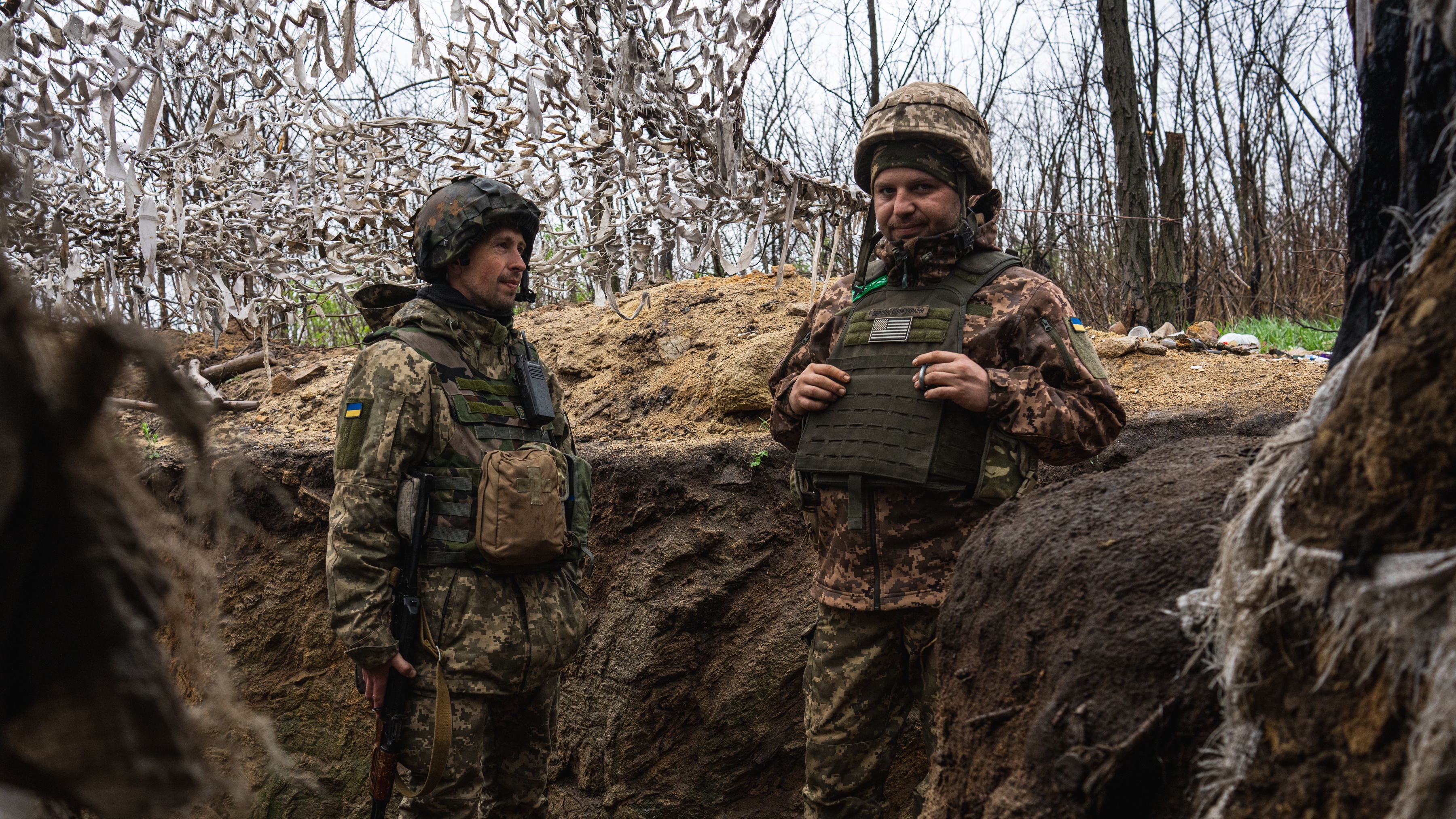Can Ukraine beat Russia in Donbas?
‘Fate of the country’ could be decided by war in the eastern region, Kyiv says

A free daily email with the biggest news stories of the day – and the best features from TheWeek.com
You are now subscribed
Your newsletter sign-up was successful
Russian troops are close to surrounding two key cities in Donbas, a Ukrainian official has said, warning the outcome of the ongoing fighting will decide the “fate of the country”.
Oleksandr Motuzyanyk, a spokesperson for the Ukrainian Ministry of Defence, said during a televised briefing that Vladimir Putin’s invading force has almost encircled the neighbouring cities of Severodonetsk and Lysychansk.
Gaining control of the two territories would hand Moscow “half of the eastern region” of the country, The Telegraph reported, though “Ukrainian forces are heavily dug in after resisting Moscow-backed separatists in the war of 2014”.
The Week
Escape your echo chamber. Get the facts behind the news, plus analysis from multiple perspectives.

Sign up for The Week's Free Newsletters
From our morning news briefing to a weekly Good News Newsletter, get the best of The Week delivered directly to your inbox.
From our morning news briefing to a weekly Good News Newsletter, get the best of The Week delivered directly to your inbox.
“Now we are observing the most active phase of the full-scale aggression which Russia unfolded against our country,” Motuzyanyk said. “The situation on the [eastern] front is extremely difficult. The fate of this country is perhaps being decided [there] right now.”
Last defenders
Mykhailo Podolyak, a senior adviser to Volodymyr Zelenskyy, last week said the courage of troops pinned down inside the Azovstal steel works, who refused to surrender for almost two months, could have slowed Russia’s plan to seize control of Donbas.
Despite their eventual surrender, the fighters bought the Ukrainian defence valuable time by refusing to flee the steel works despite being surrounded, he said.
“Azovstal defenders ruined Russia’s plan to capture the east of Ukraine, took a hit on themselves and proved the real combat capability of Ukraine,” he said, adding “This completely changed the course of the war.”
A free daily email with the biggest news stories of the day – and the best features from TheWeek.com
In early May, Oleksiy Danilov, secretary of the Ukrainian security and defence council, said that Russian forces had “tried to break through our defences” along almost “the entire front line in the territory of Donetsk, Luhansk and Kharkiv regions”.
A successful counter-offensive has since raised Ukrainian hopes of fending off Russia’s second offensive. Until the successful attacks around Severodonetsk and Lysychansk, Russian gains in Donbas had been “minimal at best”, according to US officials.
This is largely due to the fact that the “heroic hold-out” by the Azovstal steel works fighters “stopped the Russians capturing Zaporizhzhya”, a key city in southeastern Ukraine, or “closing their encirclement in the Donbas”, according to The Telegraph.
Foreign correspondent Roland Oliphant said the Donbas offensive has seemingly “run out of steam”, adding that if Ukraine eventually succeeds in pushing Russia “back to the border”, historians will study how “men and women in the tunnels of Azovstal bought enough time for one of the most remarkable military reversals in history”.
Eastern front
According to the i news site, Moscow refocused the invasion on the separatist-controlled regions of Donetsk and Luhansk in a bid to “recover momentum following stalled attempts to storm the capital and Ukraine’s southern port cities”.
The Kremlin’s “military planners have abandoned their objective of simultaneously conquering the north, south and east”, and are instead making “a concentrated effort” to consolidate control over the Donbas region, the site continued.
But hopes for a “wider Donbas victory” appear to be “slipping from reach”, Reuters said.
Even as Russia “prepares to take full control of the ruins of Mariupol”, Vladimir Putin “faces the growing prospect of defeat” in his “bid to conquer” the entire region. This is because his “badly mauled forces lack the manpower for significant advances”.
The Russian president must now “decide whether to send in more troops and hardware to replenish his dramatically weakened invasion force” as another “influx of modern Western weaponry bolsters Ukraine’s combat power”, the news agency added.
Defining moment
The second phase of the Ukraine war could be “potentially decisive”, said Sky News’ security and defence editor Deborah Haynes. It represents the “biggest test yet for Ukrainian defenders” and “could dictate the future direction of the war”.
“Ukraine has already dealt Russia a serious blow by forcing its troops to abandon an attempt to capture the capital Kyiv,” Haynes wrote. “If Ukrainian forces can prevent Russia's soldiers from achieving their objectives in the east, it would significantly strengthen Ukraine's hand in peace talks.”
Military experts “are wary of predicting who will win” the battle for Donbas, said Reuters. But all agree that it will be “a crucial conflict that will likely be brutal and ultimately define the course of the war”.
“The outcome of the battle could be that both sides will be battered to the point when neither one will be able to conduct an offensive or a counter-offensive,” Konrad Muzyka, director of the Poland-based Rochan consultancy, told the news agency.
“Ukrainians will defend their land to the last man”, he added, while “the Russians will incur significant losses”.